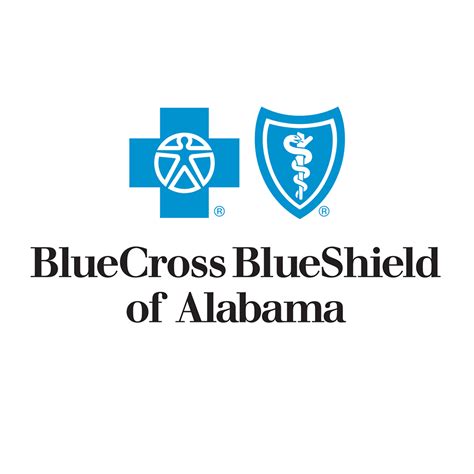Understanding Blue Cross Blue Shield’s 2025 MLR Rebate Checks: What You Need to Know
As healthcare starts to evolve in response to new regulations, understanding the implications of these changes is crucial, especially for members of health insurance plans like Blue Cross Blue Shield (BCBS). One significant element that often sparks interest among policyholders is the Medical Loss Ratio (MLR) rebate checks. These checks represent a compliance mechanism designed to ensure that health insurers are utilizing the majority of premiums collected for actual medical care and services rather than administrative costs. This article explores the implications of BCBS’s 2025 MLR rebate checks, including how they work and what members should know.
The Basics of Medical Loss Ratio (MLR)
MLR refers to the percentage of premium dollars that an insurance company spends on medical care, as opposed to administrative costs, marketing, and profit. Under the Affordable Care Act (ACA), health insurers are required to meet certain MLR thresholds. For individual and small group plans, the MLR must be at least 80%, while for large group plans, it is set at 85%.
How MLR Calculations Work
The MLR is calculated by dividing the amount spent on medical care by the total premium revenue. If an insurer’s MLR falls below the required threshold, they are obligated to provide rebates to their policyholders, which is where the MLR rebate checks come into play. For BCBS, the MLR calculations will affect rebate distributions for the 2024 plan year, disbursing checks in 2025.
Why MLR Rebates Matter
MLR rebates serve multiple purposes:
- Consumer Protection: They protect consumers by ensuring they receive value for their premium dollars.
- Incentive for Insurers: Insurers are incentivized to prioritize healthcare spending over administrative costs, aligning their strategies with member interests.
- Financial Relief: The rebates can offer financial relief to members, who may receive these as checks or credits against future premiums.
2025 MLR Rebate Checks: What to Expect
For the 2024 plan year, Blue Cross Blue Shield assessed their MLR ratios and determined whether or not they fell below the threshold. If they did, eligible policyholders would receive a rebate check in 2025. Here’s what policyholders should know:
- Who is Eligible: Generally, all BCBS members who enrolled in a plan during the previous year are potentially eligible for rebates.
- Types of Rebates: Rebate checks can come in various forms, including direct checks, premium refunds, or credits for future coverage.
- Notification Process: BCBS typically notifies members who are eligible for refunds, detailing the amount and method of disbursement.
How to Use Your MLR Rebate Checks
When you receive your MLR rebate check, the way you use it can have a significant impact on your overall healthcare budget. Here are some tips:
- Consider Your Needs: Assess whether to use your rebate to pay for ongoing medications, routine care, or to save for future health expenses.
- Review Future Premiums: If you opt for a credit towards future premiums, it could ease your financial burden for the upcoming year.
- Consult Financial Advisors: If you’re unsure how to allocate your rebate for maximum benefit, talking to a financial advisor could provide guidance.
Potential Challenges and Concerns
While MLR rebate checks are welcomed by many, there are some potential challenges to consider:
- Uncertainty of Amount: Members can be uncertain about the amount they may receive, as it depends on various factors, including the insurer’s MLR performance.
- Tax Implications: It’s advisable to consult a tax professional to understand if the rebate has any implications on your tax return.
- Communication Issues: Some members may not receive communication on their rebate eligibility, leading to potential confusion.
Conclusion
Understanding the MLR rebate checks from Blue Cross Blue Shield for the 2025 payout is essential for empowering policyholders regarding their health insurance spending. As BCBS navigates through compliance and member satisfaction, the distribution of MLR rebates serves as a recall to the core objective of providing value to enrollees. By keeping informed and knowing what to expect, members can make the most of their rebate checks and utilize them in ways that enhance their healthcare experience.
FAQs
What is an MLR rebate check?
An MLR rebate check is a refund issued to health insurance policyholders if their insurer does not meet the required Medical Loss Ratio, ensuring that a significant portion of premium payments go towards medical care and services.
How will I know if I am eligible for a rebate?
BCBS typically notifies policyholders who are eligible for rebates, detailing the amount and the form of the rebate (check, credit, etc.).
When will I receive my 2025 rebate check?
The rebate checks for the 2024 plan year will generally be disbursed in 2025, although specific dates may vary.
Are there tax implications for MLR rebates?
Yes, MLR rebates may have tax implications. It’s advisable to consult with a tax professional for guidance tailored to your situation.
Can I use my rebate check for anything?
Yes, you can use your rebate check for various expenses. Many policyholders choose to allocate it toward medical expenses, ongoing treatments, or to offset future premiums.
Download Blue Cross Blue Shield Mlr Rebate Checks 2025
